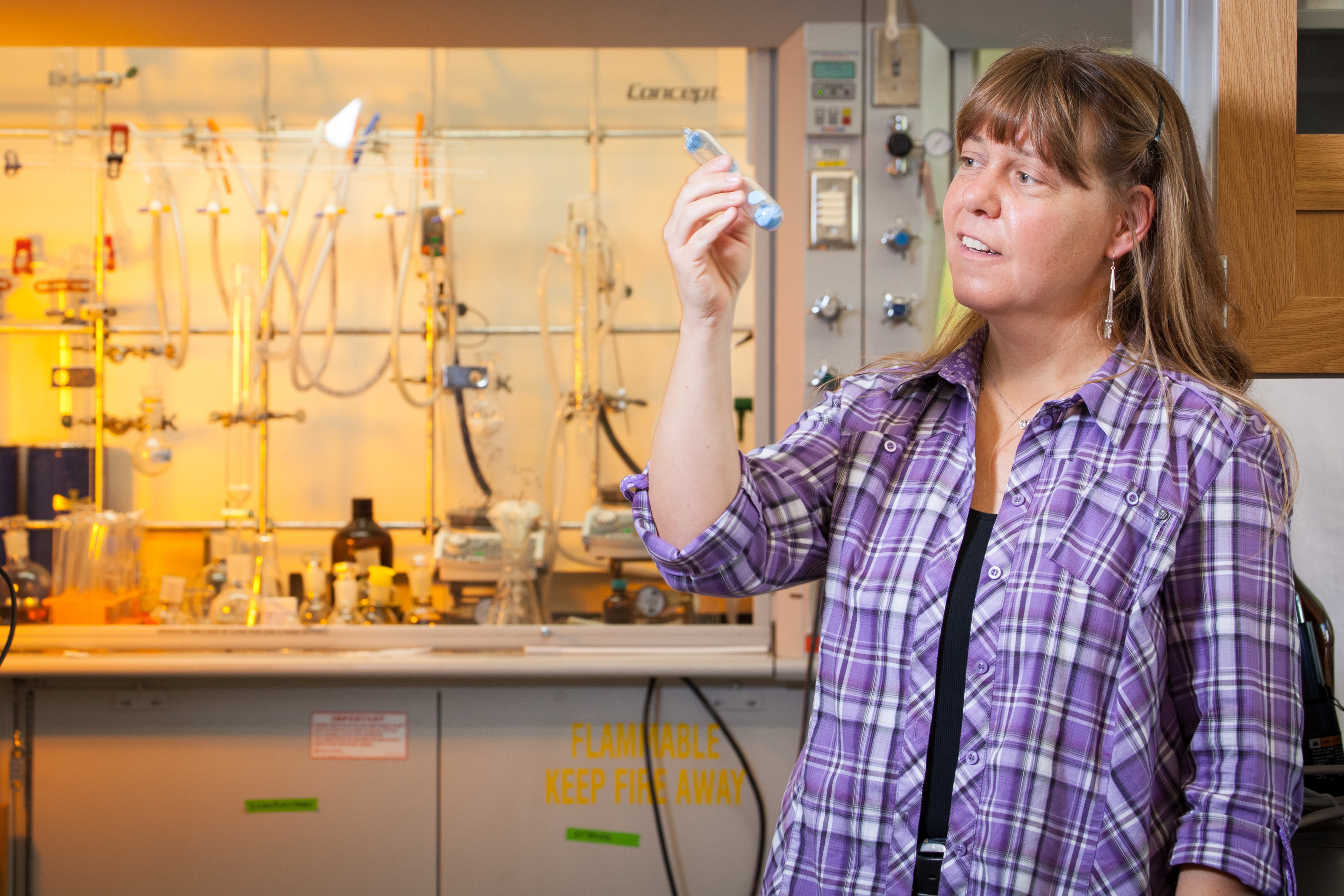FAYETTEVILLE, Ark. — As an organic chemist, Susanne Striegler prepares macromolecular catalysts that promote unnatural reactions on carbohydrates and glycosides that enzymes cannot perform.
In the long run, Striegler hopes to develop a kit-like tool that allows non-synthetic chemists to create glycosylation reactions needed for the preparation of new pharmaceuticals.
“Many enzymes are very specific in the reactions they can catalyze while requiring special reaction conditions,” said Striegler, an associate professor in the department of chemistry and biochemistry in the J. William Fulbright College of Arts and Sciences. “Taken together, that limits their scope and usage for synthesis. Macromolecular microgel catalysts, on the other hand, consist of a catalytic center surrounded by a man-made polymer resembling the key features of an enzyme, but enable a large variety of reactions under any condition desired. These microgels work in water like enzymes would, so there is a similarity. However, ours is a totally new design of catalysts.”
Striegler’s research group, which currently includes three postdoctoral research associates and five undergraduate researchers, transforms transition metal complexes into selective macromolecular catalysts by immobilizing them in templated micro- and nanogels. The material is designed to transform carbohydrates into other, useful entities, such as oligosaccharides or unnatural sugars.
The National Science Foundation recently awarded Striegler a $360,000, three-year grant for project to further develop water-soluble microgels with immobilized transitional metal complexes as catalysts for glycosylation reactions.
“There are only a handful of people in the world who are working on catalytic microgels,” Striegler said. “This work covers so many fields: organic synthesis, inorganic chemistry, biochemistry and material science. You need to have expertise in all of them to actually play this game. It’s fun to play.”
Striegler came to the university in the fall of 2012 from Auburn University, where she had taught since 2004. Striegler has edited one book, authored two book chapters and published more than two dozen peer-reviewed journal articles.
In 2008, she received a Faculty Early Career Development Program award through the NSF. The grant, better known as a CAREER award, is one of the highest honors given by the foundation to junior faculty members. Recipients are selected based on high-quality research and the integration of that research with education initiatives in the context of the university’s mission.
Contacts
Susanne Striegler, associate professor
Chemistry and biochemistry
479-575-4601,
Chris Branam, research communications writer/editor
University Relations
479-575-4737,
